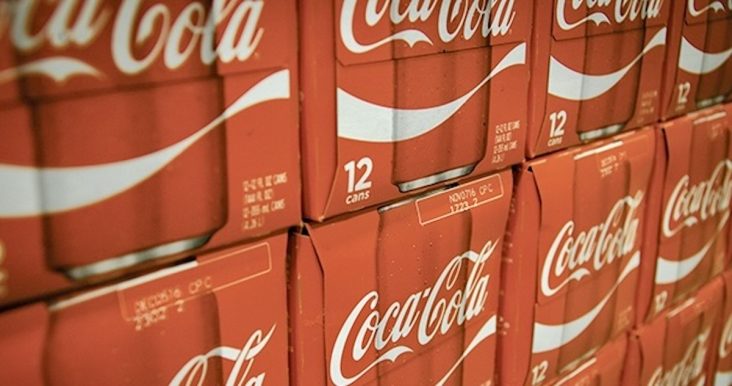Gov. Sanders seeks ban on SNAP junk food purchases
by April 15, 2025 1:39 pm 1,345 views

Gov. Sarah Sanders has asked for a waiver from the Trump administration barring Supplemental Nutrition Assistance Program (SNAP) recipients from using their benefits to purchase candy, soft drinks, and other unhealthy foods.
Sanders made the announcement at the Governor’s Mansion on Tuesday (April 15) alongside U.S. Secretary of Agriculture Brooke Rollins, the head of the agency that would grant the five-year waiver.
Arkansas would be the first state to make a request of this kind. It seeks to block sugary drinks and junk food from being funded by SNAP, commonly known as food stamps. The request would remove from eligibility soda, low-and no-calorie soda, fruit and vegetable drinks with less than 50% natural juice, unhealthy drinks, and candy. Flavored water, carbonated flavored water, and sports drinks would not be included.
The waiver request, which was submitted April 15, also seeks to add prepared rotisserie chicken to the program.
“Right now, you can use food stamps to buy soft drinks or a candy bar from a gas station, but you can’t use them to buy an Arkansas-raised, hot rotisserie chicken from a grocery store,” Sanders said at the news conference. “That’s the definition of crazy, especially when our state has so many farmers and ranchers raising healthy, homegrown products right here in our backyard.”
SNAP is a federally funded program largely administered by the states. The maximum allotment for a family of four in the lower 48 states and Washington, D.C., is $975 in fiscal year 2025. The federal government will spend about $100.2 billion on SNAP in fiscal year 2025, according to the Food and Agricultural Policy Research Institute at the University of Missouri. Rollins said the program’s largest spend is on soda.
She called the waiver request “a historic and leading step toward restoring health in our great nation.”
Following the waiver request is a voluntary 30-day comment period where Sanders said the state and Department of Agriculture will work on final details. Rollins said the United States Department of Agriculture (USDA) and the governor’s office have a conference call scheduled for April 16.
Rollins said she came to Arkansas even though the waiver has not yet been approved. She expects it to move quickly.
“We’ll get the waiver through the process,” she said.
More than 100,000 Arkansas households receive SNAP benefits. Meanwhile, more than one-third of Arkansans have diabetes or pre-diabetes, according to the waiver request. The state has the nation’s second-highest diabetes mortality rate. At the same time, the state’s Medicaid program spends at least $300 million annually treating chronic illness.
The request pointed to a Stanford study in 2014 that said removing sugary drinks from food stamps would prevent obesity in 141,000 American children and Type 2 diabetes in 240,000 adults.
“Taxpayers are subsidizing poor health,” Sanders said at the news conference. “We’re paying for it on the front end and the back end. That’s not a nutrition program. It’s actively harming Arkansans’ health and contributing to our nation’s mountain of debt.”
She said that while the government would not pay for soft drinks and unhealthy food, it would not dictate to recipients how they spend their own money.
Rollins said President Donald Trump is seeking to “make America healthy again” and that Secretary of Health and Human Services Robert F. Kennedy Jr. was making an announcement with Indiana’s governor at the same time she was with Sanders.
She said 40% of American school-age children and adolescents have at least one chronic health condition.
“We at USDA are committed to funding health, not illness, to satisfying hunger with nutritious food produced and harvested by our incredible farmers and ranchers here in America, but not unhealthy food products that fuel chronic disease,” Rollins said.
The state will also reform its SNAP education funding to promote protein-rich foods. It would distribute education funding directly to schools, food banks, and other community agencies.
Arkansas would use the GS1 US food categorization system to define the foods that would be ineligible. GS1 is a nonprofit data sharing organization best known for providing UPC barcodes.
Merideth Potter, senior vice president of public affairs for the American Beverage Association, said in an interview that obesity is a complex problem not driven by soda consumption. Her group represents the nonalcoholic beverage industry and local independent bottlers.
She said calories from beverages have been declining, and the industry has been providing consumers more choices. Four hundred brands on the market and 60% of the industry’s sales have no sugar.
Potter said the waiver request doesn’t consider the totality of recipients’ diets or other issues affecting low-income Americans such as access to healthier foods and beverages.
“It’s disappointing because SNAP restrictions restricting a segment of the population from a single aisle or two from the grocery store won’t actually improve health, and it won’t save the taxpayer any money,” she said. “We’re not reforming the program. We’re not cutting the program. You’re just saying what certain people can buy with their SNAP dollars, and that’s not a real solution.”
